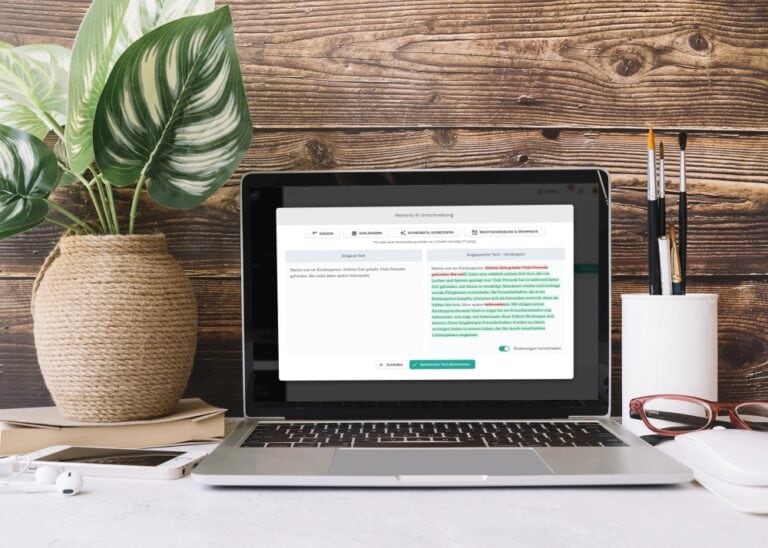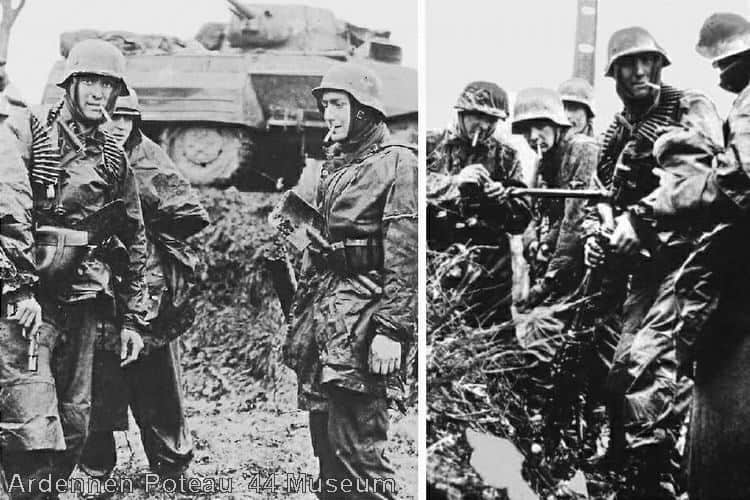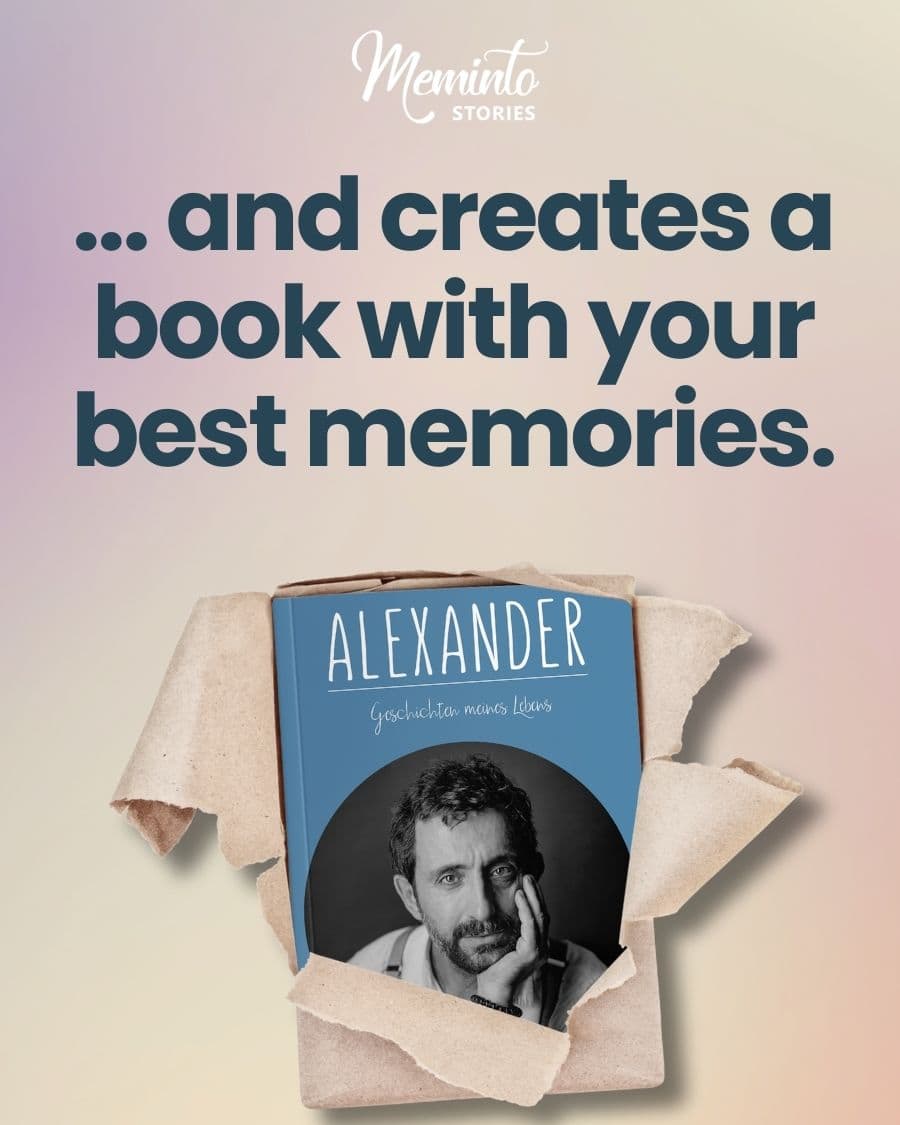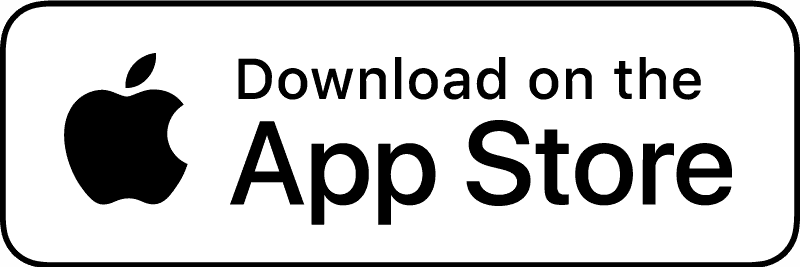Life story interview questions should encompass a wide range of topics, including delving into childhood memories, exploring the dynamics within the family unit, understanding the journey through education and career choices, uncovering insights into personal relationships and aspects of life outside of professional realms, and addressing the challenges faced and victories achieved along the way.
When you’re writing a life story, whether it’s about yourself or someone you care about, digging deep to uncover those meaningful moments is critical. You want to share something that resonates. That’s where asking the right questions comes in. They help you get to the heart of those experiences that matter. So, when you’re sitting down to write, think about what you want to share and ask those specific questions that’ll bring out the best insights.
In the rest of this article, we’ll delve into the significance of life story interview questions, discuss strategies for crafting the perfect questions, and examine some essential life story interview questions.
Get $10 off your first Meminto book project 📖
We appreciate you for reading this article. As a token of our gratitude, we would like to offer you a special $10 discount on your first book with Meminto!
Key Takeaways
- Life story interviews should cover a broad spectrum, including childhood memories, family dynamics, education, career choices, personal relationships, and significant life events.
- Asking the right questions is essential to uncover meaningful moments that resonate in a life story.
- Thoroughly research the interviewee’s background to craft thoughtful questions that capture the essence of their life journey.
- Organize your questions to ensure a smooth flow and to facilitate a natural and engaging conversation.
- Tools like Meminto can simplify the process by providing ready-made questions across various topics.
Tips for crafting thoughtful life story interview questions

Suppose you want to write a life story about someone, whether a loved one or someone who inspires you. You aim to capture their life experiences and convey a message through their story. But you might find that you need help figuring out where to start. Using the right questions is a great way. Here’s a comprehensive guide to assist you in crafting life story interview questions that will help you capture their essence and create a captivating story.
Research their background.
Before crafting life story interview questions, thoroughly research the background of the person you’re interviewing. Here are the areas you should look into:
Upbringing:
Learn about their childhood environment, including:
- Family dynamics
- Cultural background
- Early life experiences.
Education:
Explore their educational journey, noting any significant achievements, areas of study, or challenges they encountered.
Career trajectory:
Investigate their career progression, highlighting:
- Professional accomplishments,
- Career transitions
- Promotions
- Entrepreneurial endeavors
Significant life events:
Identify pivotal moments in their life that have influenced their life story, such as:
- Marriage
- Parenthood
- Relocation
- Personal tragedies
Personal relationships:
Explore their relationships, including
- Friendships
- Romantic partnerships
- Family dynamics
Interests:
Please take note of their hobbies, passions, and pursuits outside of work, as these can provide valuable insights into what drives and inspires them.
By thoroughly researching the interviewee’s background and identifying key themes and interests, you’ll be well-equipped to craft thoughtful and meaningful life story interview questions that elicit compelling responses.
Organize your questions
Now that you’ve gathered all the necessary information, it’s time to organize your questions in a way that flows smoothly and can capture the essence of the life story.
Life Stories Interview Questions Ideas

Early life Questions:
Ask questions about their upbringing, family background, and childhood experiences. These questions lay the foundation for understanding their journey. Some good examples are:
- What do you remember from when you were little?
- What was your family like when you were growing up?
- Who did you look up to when you were young?
- Did your family have any unique traditions?
- How did you get along with your family?
- What’s your favorite memory from when you were young?
- Can you think of something funny or embarrassing that happened to you?
- What traditions do you enjoy?
Educational and career journey questions:
Transition into questions about a career path, highlighting significant milestones, achievements, and challenges they’ve faced. This section provides insight into their professional growth. Some good examples are:
- Can you share a favorite school memory?
- How did you pick your job?
- What was your first job, and what did you learn?
- What’s been the best and most challenging part of your job?
- How do you know if you’re doing well at work?
- How do you balance work and your personal life?
- What have you learned from past relationships?
Personal Background Questions:
Write down questions related to personal development, including moments of self-discovery, overcoming obstacles, and evolving. This segment delves deeper into their character and resilience. Some good examples are:
- What has been your proudest accomplishment so far?
- Have there been any moments of unexpected joy?
- How do you handle tough times?
- What advice would you give to your younger self?
- What are some cool things you’ve done or seen in your life?
- Can you think of a time when you were pleased?
- Have you ever been scared or worried? How did you get through it?
- What’s something surprising about you?
Interests and Passions Questions:
Come up with questions to reflect their interests, hobbies, and areas of expertise. Dive into topics that resonate with their passions and experiences, adding depth to their story. Some good examples are:
- Is there a song, movie, or book you love?
- What are some of your favorite hobbies or activities?
- What are your passions, and why do they matter to you?
- Are you part of any clubs or groups related to your hobbies?
- Have you ever participated in any charity or volunteer work related to your interests?
- Have you ever tried any adventurous activities like skydiving or rock climbing?
Relationships Questions:
Dedicate a section solely to exploring relationships. Ask about their friendships, romantic partnerships, and any other meaningful connections they’ve had. Dive into how these relationships have influenced their growth, decisions, and overall journey. Some good examples are:
- What’s your experience with love?
- How have your friendships changed over time?
- Did any relationships have a significant effect on you?
- Who makes you laugh the most?
- How do you deal with people who think differently from you?
- How do you show thanks or appreciation?
Beliefs and values Questions:
Continue by exploring their beliefs and values. Ask about their principles, philosophies, and moral compass. Dive into what they hold dear and how these beliefs have influenced their decisions and actions. Some good examples are:
- Do you have any beliefs or ideas that guide you?
- Can you recall a moment when you had to step outside of your comfort zone, and how did it impact your life?
- Was there a time when you had to defend your beliefs, even when it was hard?
- How do your beliefs influence your daily decisions and actions?
- Are there any cultural or spiritual beliefs that are important to you?
- What is the most important lesson you’ve learned about life so far?
- Are there any causes or social issues that you feel strongly about?
- Are there any role models or individuals who have influenced your beliefs?
Future Aspirations Questions:
Conclude the interview by asking about their future aspirations, goals, and dreams. Explore what they hope to achieve in the next chapter of their life journey, offering a glimpse into their hopes and ambitions. Some good examples are:
- What are you looking forward to in the future?
- What advice would you give your younger self?
- What do happiness and success mean to you?
- What’s something important you’ve learned?
- Have you ever felt connected to someone or something?
- How do you want to be remembered?
- What kind of legacy do you want to leave behind?
Organizing your questions will create a seamless and engaging conversation that allows the interviewee’s life story to unfold naturally and vibrantly.
Use Meminto
No worries if you’re not up for the hassle of brainstorming and researching to create those interview questions! There’s an easier route. Use Meminto. It’s like your shortcut to many diverse topics ready to be explored. All you have to do is sign up, and voila, you’ve got various questions across various issues and interests at your fingertips.






















